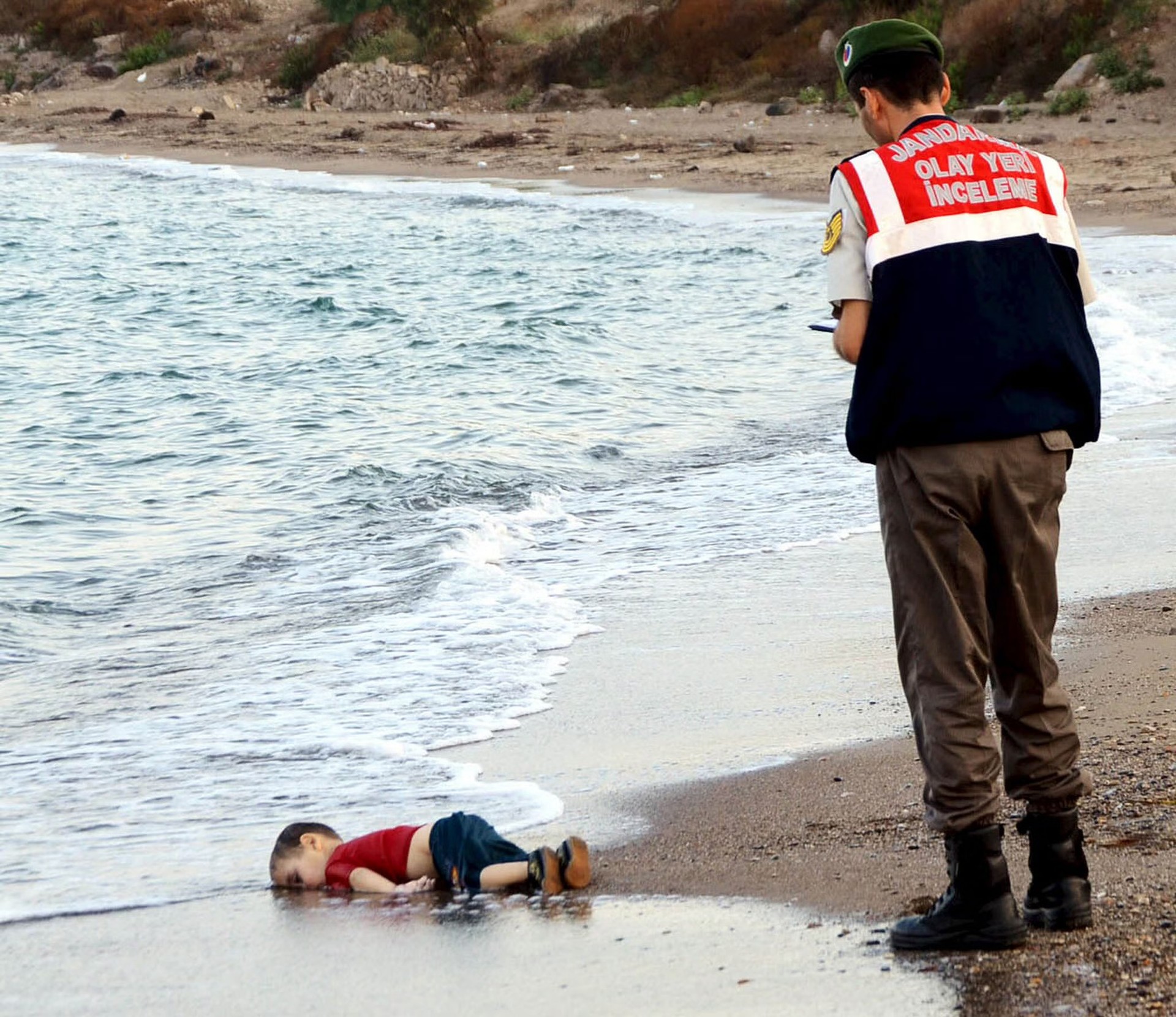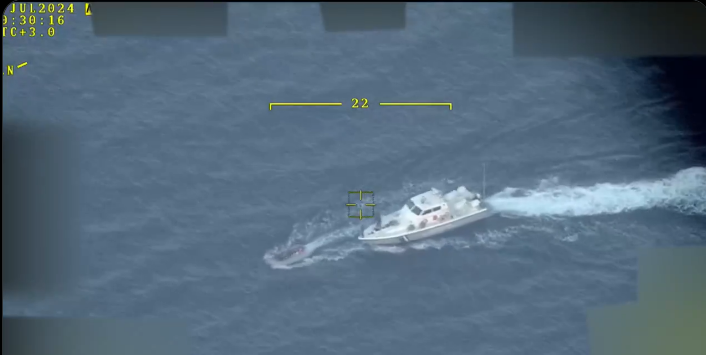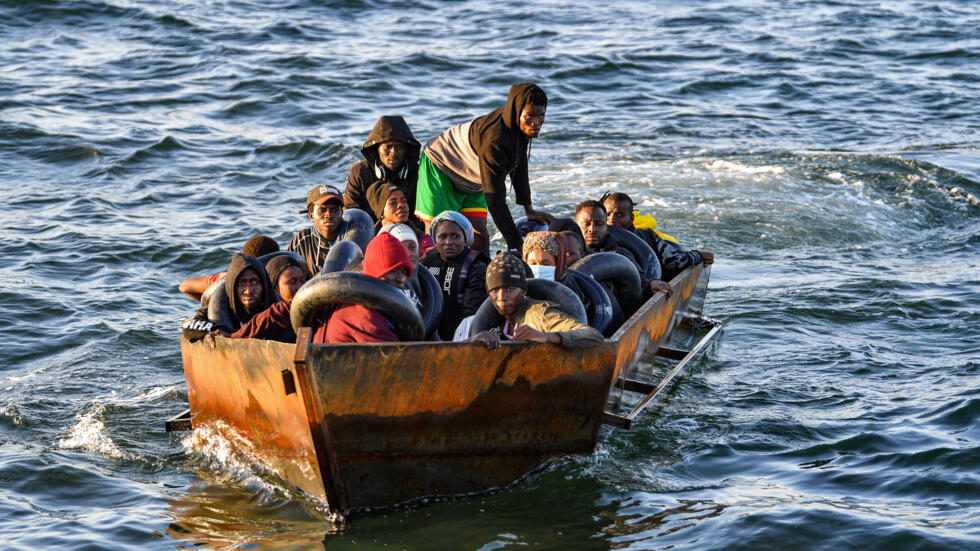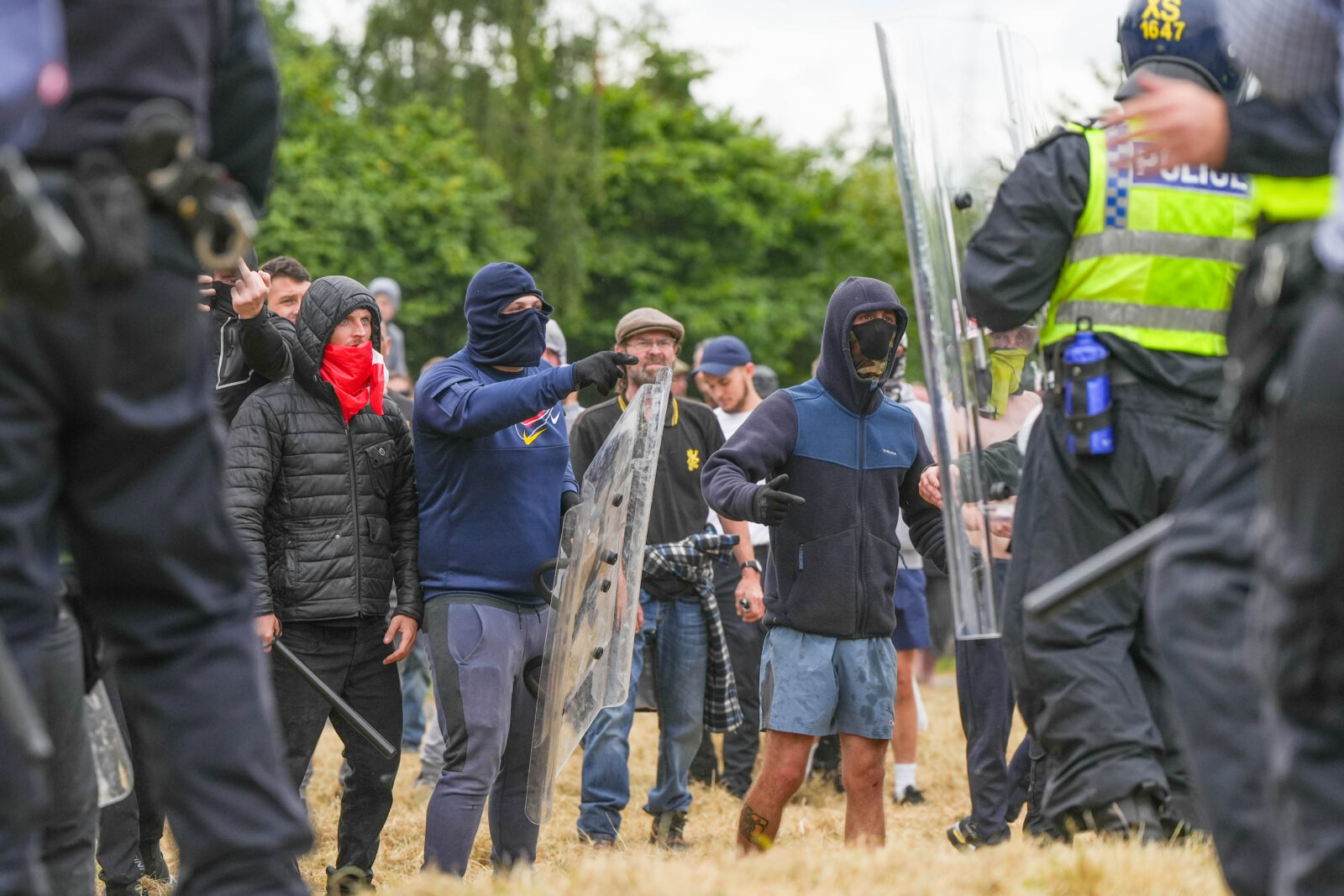
On Sept. 2, 2015, the world was shaken by the tragic image of 3-year-old Alan Kurdi, whose lifeless body washed ashore on a beach in Bodrum, Türkiye.
Alan, along with his mother and brother, drowned as they attempted to cross the Aegean Sea to reach Greece. The photo of Alan lying face down in the sand quickly became a powerful symbol of the Syrian refugee crisis, drawing global attention to the plight of millions fleeing war and persecution.

Abdullah Kurdi, Alan’s father, who survived the tragedy, was left devastated by the loss of his entire family. Reflecting on his loss, he said, "My kids were the most beautiful children in the world, wonderful. They woke me up every morning to play with them. They are all gone now." His grief resonated worldwide, as people struggled to comprehend the enormity of the tragedy.

Despite the global attention that Alan's death brought to the refugee crisis, the perilous journey across the Mediterranean Sea remains a deadly gamble for thousands of migrants. The route that Alan and his family took is still used by many refugees fleeing conflict, persecution and poverty. However, the dangers have only increased over the years.
Recent reports have brought to light the continued risks faced by migrants, with allegations against the Hellenic Coast Guard for pushing back boats and, in some cases, even throwing migrants overboard.
A BBC investigation revealed that nine people were allegedly thrown into the sea by the Greek Coast Guard, leading to their deaths. One survivor recounted the horror: "They tied my hands behind my back and threw me into the water. They wanted me to die." Such testimonies paint a grim picture of the ongoing challenges that refugees face in their desperate search for safety.

In response to these dangerous pushbacks, Turkish authorities have taken on the critical role of rescuing migrants who have been forced back into Turkish waters by the Greek Coast Guard. According to reports, the Turkish Coast Guard has saved the lives of thousands of migrants who were left adrift in the Aegean Sea.
President Recep Tayyip Erdogan recently stated that Türkiye's Coast Guard had rescued 41,000 people who were "left to die by Greece" over the last two years. This stark reality illustrates the ongoing dangers that refugees face as they attempt to cross into Europe, often encountering hostility and life-threatening conditions.
These rescue operations by Turkish authorities underscore the ongoing humanitarian crisis in the Mediterranean, where refugees continue to face immense risks in their quest for safety.

In the wake of Alan Kurdi's death, there were widespread calls for immediate action to address the refugee crisis. World leaders promised to take steps to prevent such tragedies from recurring, but these promises have largely gone unfulfilled.
While some countries have made efforts to provide aid and resettlement opportunities, the overall response has been insufficient, leaving many refugees vulnerable and unprotected.
The European Union, in particular, has faced criticism for its handling of the refugee crisis. Despite investing significant resources into addressing the needs of migrants, most efforts have focused on keeping refugees out of Europe rather than offering them safe passage or protection. Pushback practices, like those reported in Greece, continue to put vulnerable lives at risk.
Abdullah Kurdi, who lost his family to the sea, has spoken out against the ongoing crisis, saying, "I want the whole world to see. We went through a disaster and I don't want other people to suffer the same." His plea echoes the frustration of many who see little change in the treatment of refugees since Alan's death.

While the world remembers Alan Kurdi as a symbol of the refugee crisis, the root causes of migration – war, poverty, and persecution – remain unaddressed. The ongoing civil war in Syria, now in its thirteenth year, continues to displace millions. In addition, conflicts in other regions, such as Afghanistan and parts of Africa, have driven even more people to seek refuge in Europe.
The plight of these refugees is compounded by the fact that many countries have tightened their borders in response to the crisis. The United Nations High Commissioner for Refugees (UNHCR) reported that nearly 8,000 people have reached Greece so far this year, most of them departing from Türkiye. However, thousands more have been pushed back or left to fend for themselves in dangerous conditions.

As the refugee crisis continues, the challenges faced by migrants are not limited to the dangers of the Mediterranean crossing. In recent years, there has been a troubling rise in xenophobia and far-right movements across Europe, which has further complicated the situation for refugees seeking safety.
Far-right groups in several European countries, including the U.K. and Greece, have intensified their anti-immigrant rhetoric and actions. In the U.K., for example, far-right organizations like the English Defence League (EDL) have been involved in violent protests against immigrants, fueled by false narratives and social media-driven hate campaigns. Such movements have gained traction in other parts of Europe as well, creating an increasingly hostile environment for refugees.
This growing wave of nationalism and xenophobia has led to more restrictive immigration policies and harsher treatment of migrants. The pushback practices employed by the Greek coast guard, which have resulted in deaths and near-fatalities, can be seen as part of this broader trend of rising anti-immigrant sentiment.

Alan Kurdi's death remains a powerful reminder of the human cost of the refugee crisis. The image of his small body lying on the beach continues to resonate with the global conscience, yet little has changed in how the world addresses the crisis. The international community has failed to create safe and legal pathways for refugees, leaving many to risk their lives on dangerous journeys.
In the years since Alan's death, over 20,000 lives have been lost in the Mediterranean Sea. According to the Missing Migrants Project, roughly half of these bodies have never been recovered. UNICEF reported that in the first six months of 2023 alone, at least 289 children died at sea while attempting to reach Europe. These figures show the ongoing tragedy that continues to unfold on Europe's shores.